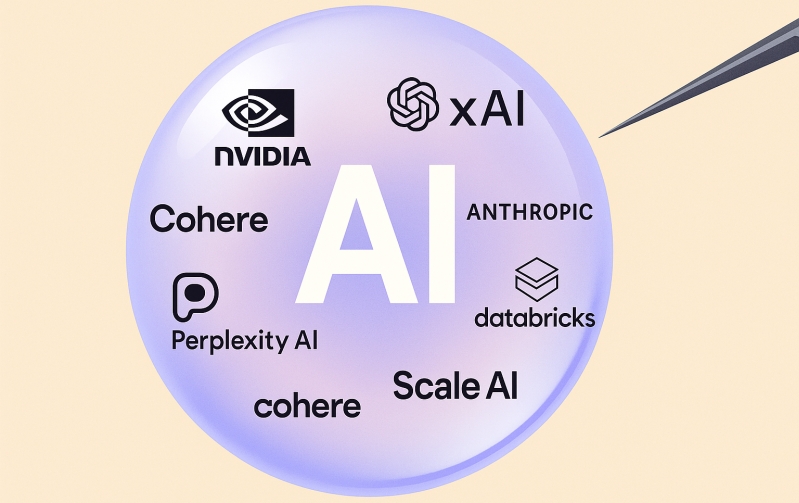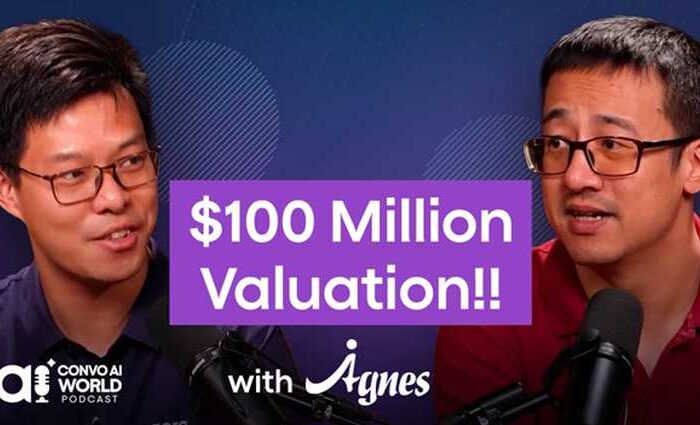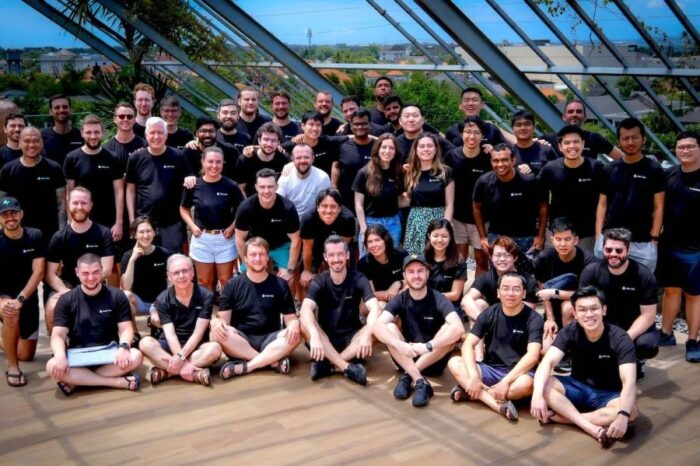AI bubble warnings grow louder: Investors sound alarm on sky-high startup valuations

The AI boom has dominated headlines for months, but a growing chorus of influential voices is starting to sound uneasy. What began as a caution from OpenAI CEO Sam Altman in August has turned into a broader debate about whether the frenzy around artificial intelligence is starting to look like the late-1990s dot-com bubble.
Back then, internet stocks soared to dizzying heights before crashing, wiping out nearly 80% of Nasdaq’s value. Altman, OpenAI’s CEO, sees echoes of that period in today’s AI rush. A month later, some of the world’s largest investors are publicly agreeing with him.
According to Reuters, venture capital continues to flood into AI startups at record levels. But senior investment executives are starting to warn that valuations, especially for early-stage companies, are looking stretched.
“There’s a little bit of a hype bubble going on in the early-stage venture space,” said Bryan Yeo, group chief investment officer at Singapore sovereign wealth fund GIC, during a panel at the Milken Institute Asia Summit 2025 in Singapore. “Any company startup with an AI label will be valued right up there at huge multiples of whatever the small revenue (is). That might be fair for some companies and probably not for others.”
Investor Concerns Over AI Funding Mirror Dot-Com Era Warning Signs
The numbers paint a striking picture. In the first quarter of 2025 alone, AI startups raised $73.1 billion globally, accounting for nearly 58% of all venture capital funding, according to PitchBook. Much of that was driven by mega-rounds like OpenAI’s $40 billion capital raise, as investors scrambled to secure their place in what many see as the next great technological wave.
Yeo warned that “market expectations could be way ahead of what the technology could deliver.” He pointed to a massive surge in AI-related capital expenditure, saying it’s currently masking weaknesses elsewhere in the economy.
Todd Sisitsky, president of alternative asset manager TPG, echoed the concern. He warned that the fear of missing out can be dangerous for investors. Some AI firms are pulling in $100 million in revenue within months, he said, but others are commanding valuations of between $400 million and $1.2 billion per employee — a level he described as “breathtaking,” Reuters reported.
The skepticism doesn’t end there. Adrian Cox, Deutsche Bank Research Institute’s thematic strategist, told CNBC ‘Squawk Box’ in an interview that recent trends point to what he calls a “bubble in concerns” about an AI bubble. Searches for “AI bubble” on Google surged in August following Altman’s warning and an MIT study claiming that 95% of AI pilots fail. But by September, those searches had fallen to 20% of their peak.
Cox argues that this drop in concern could ironically help a real bubble form. When too many people are cautious, excess often gets tempered. But when that caution fades, speculative behavior can accelerate. He draws a comparison to how talk of recessions sometimes delays downturns, and highlights the uneven risks across the AI landscape. Infrastructure providers, like chip suppliers, are likely to complete contracts regardless of future payoffs, while companies betting on productivity gains face a shakier path. When asked how early we are in the cycle and “what inning we’re in,” Cox responded:
“Yeah, it’s interesting. Obviously, you can only identify a bubble once it’s burst back there in the rear view mirror. But one thing which we have been seeing is a huge bubble in the term “AI bubble” in concerns about an AI bubble. And so I had a hunch about this and looked at Google Trends and saw that, in fact, there was a huge run-up during the course of August in searches for “AI bubble,” which then just dropped off a cliff once you’d had a peak, with Sam Altman saying that investors were overexcited.”
Cox uses a traffic light metaphor to describe the current mood. Red lights include enormous AI-related capital expenditures that might not be recovered within chip lifecycles, and ballooning private valuations, such as OpenAI’s potential $500 billion figure. The CNBC host offered a counterpoint, noting that Google faced similar skepticism after its IPO, but its valuation was quickly surpassed as its business scaled. Cox agreed that bubbles pop — sometimes violently — but reminded viewers that they often stretch longer than expected. He cited an investment manager in 1998 who called the dot-com bubble 16 months early, missing the Nasdaq’s climb from 2,000 to 5,000.
The takeaway is less about whether AI is a bubble right now and more about recognizing the signs. AI today feels like electricity in its early years — transformative but still waiting for the breakthrough applications that unlock its full potential. It took decades after the invention of electricity for household appliances like refrigerators and air conditioners to emerge, each sparking unprecedented power demand. AI’s killer applications are likely still ahead, and when they arrive, they’ll trigger a surge in data center growth that dwarfs anything we’ve seen so far.
For now, the paradox is clear. AI startups are flush with capital, investors are sounding alarms, and the mood feels eerily similar to the dot-com era. Whether this ends in a bubble bursting or fuels the next trillion-dollar wave is the trillion-dollar question.
Watch Adrian Cox’s full interview on CNBC’s Squawk Box below.




